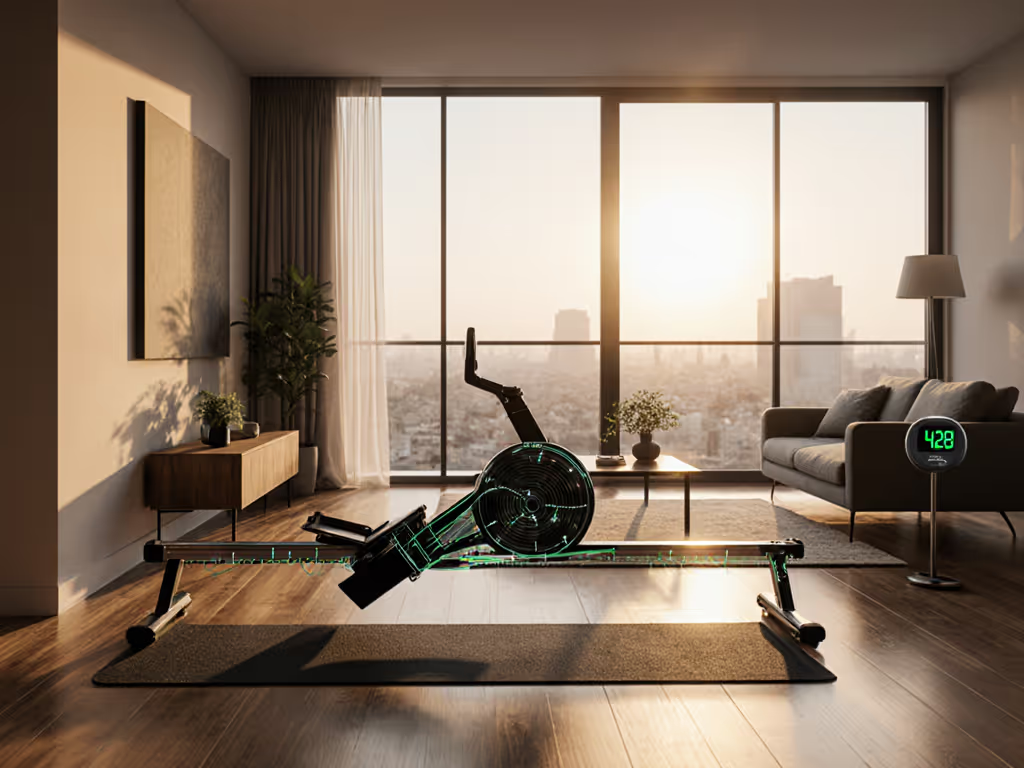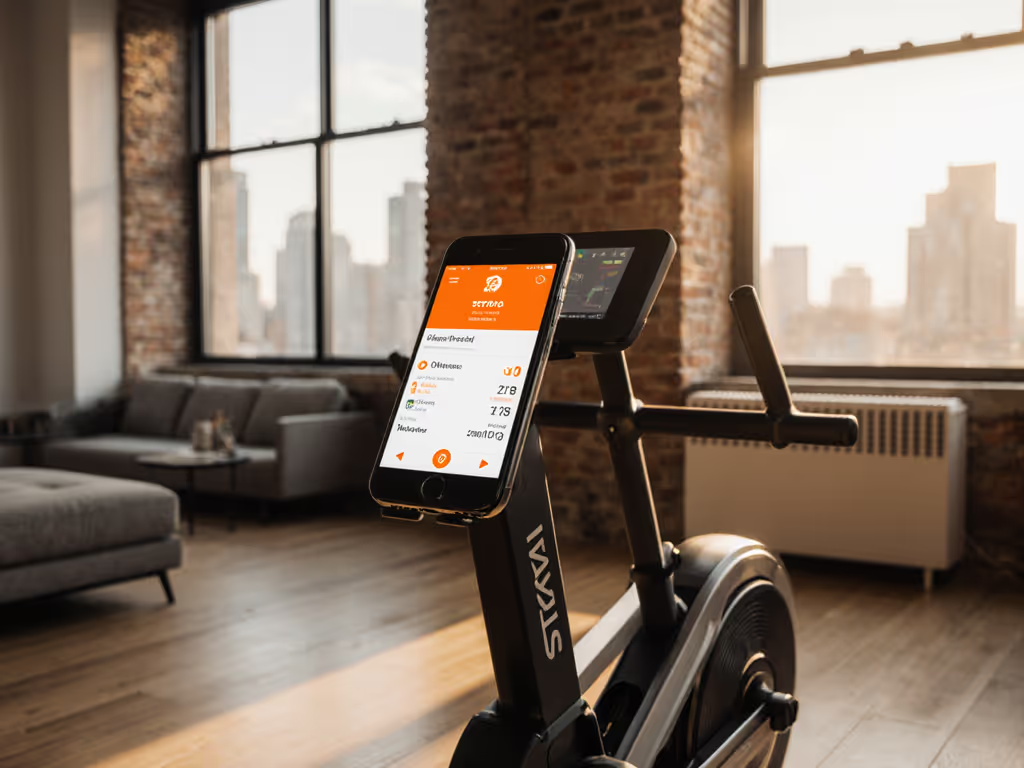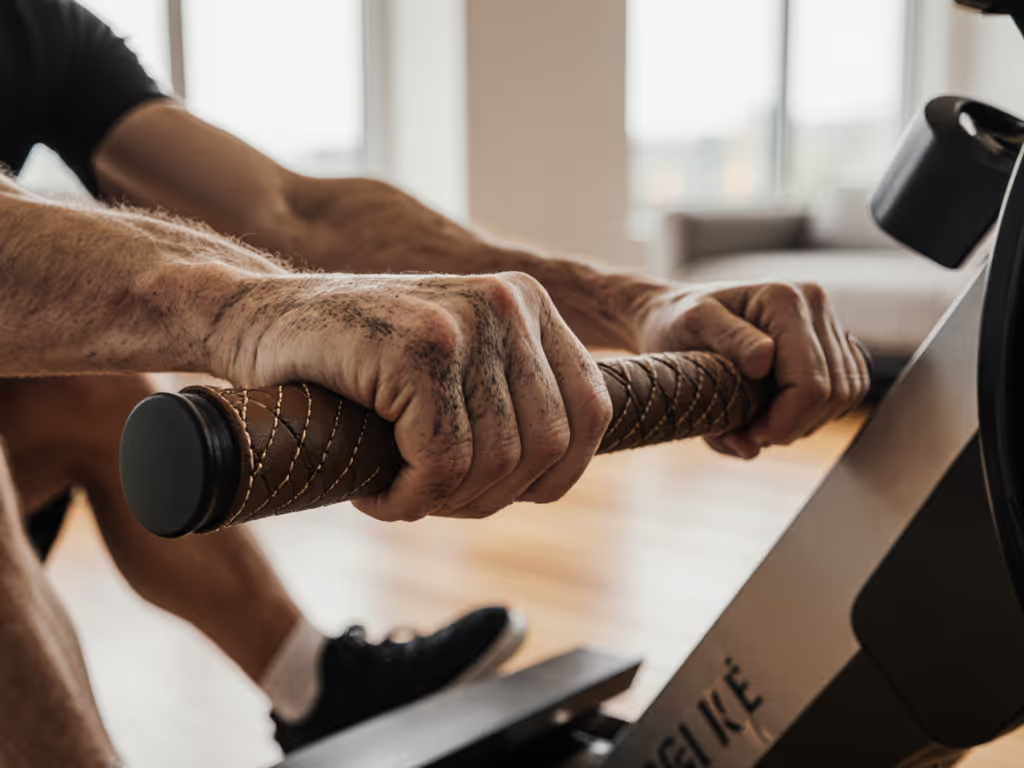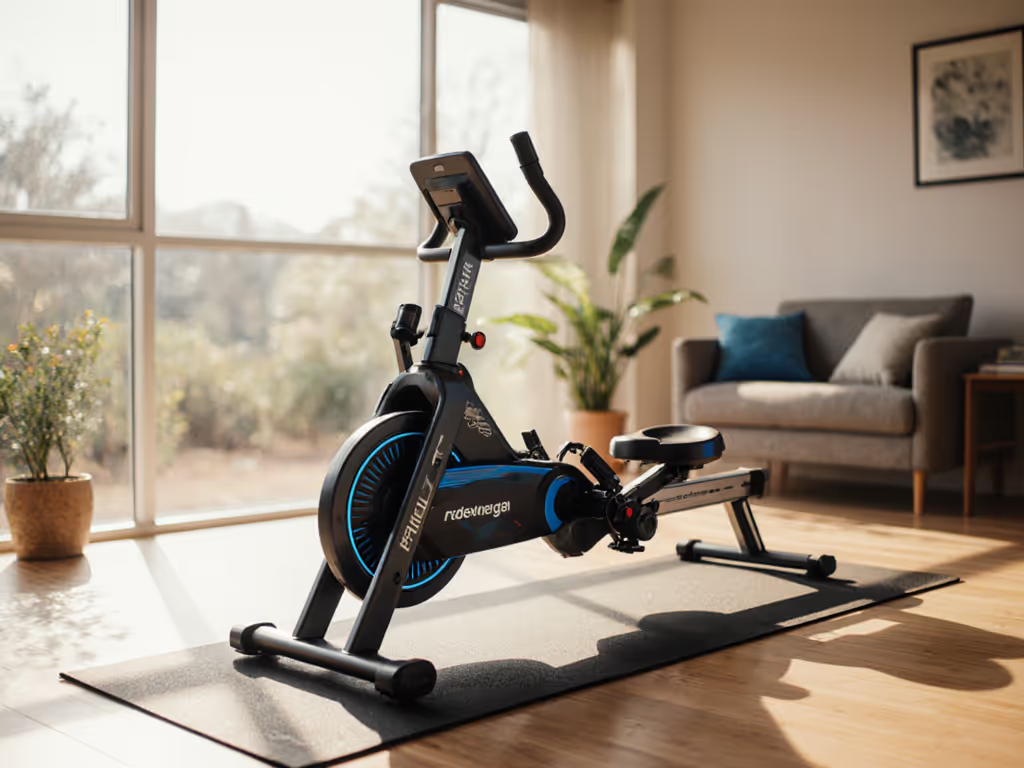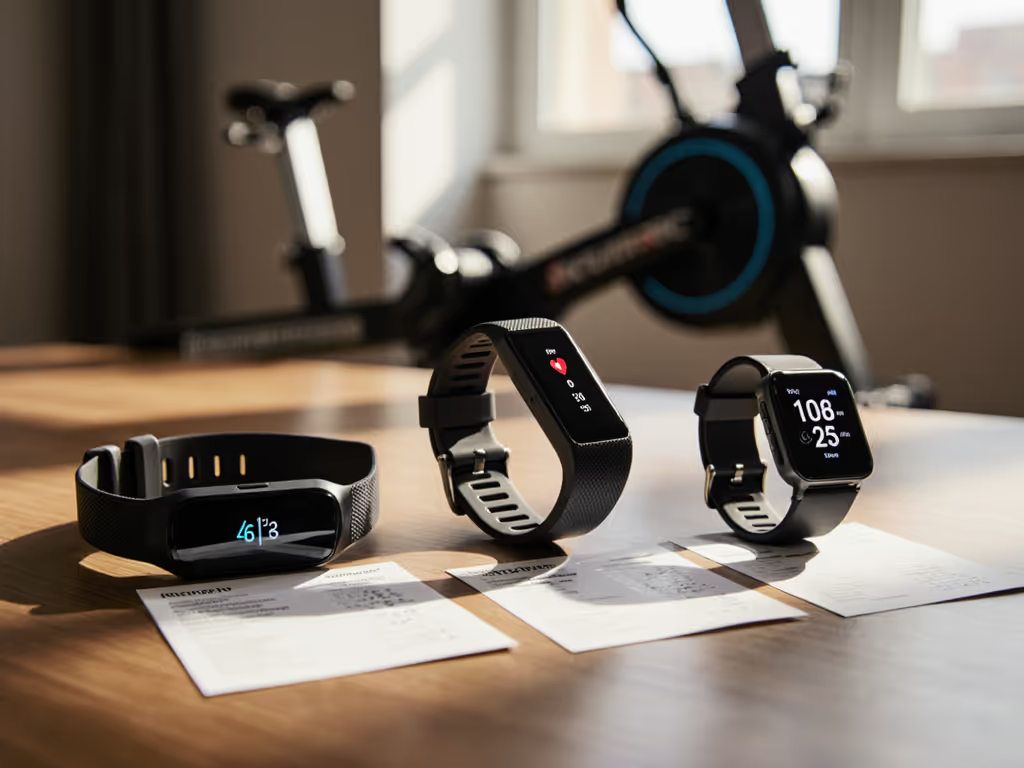
Rower Subscription Value: Cost Per Workout Compared
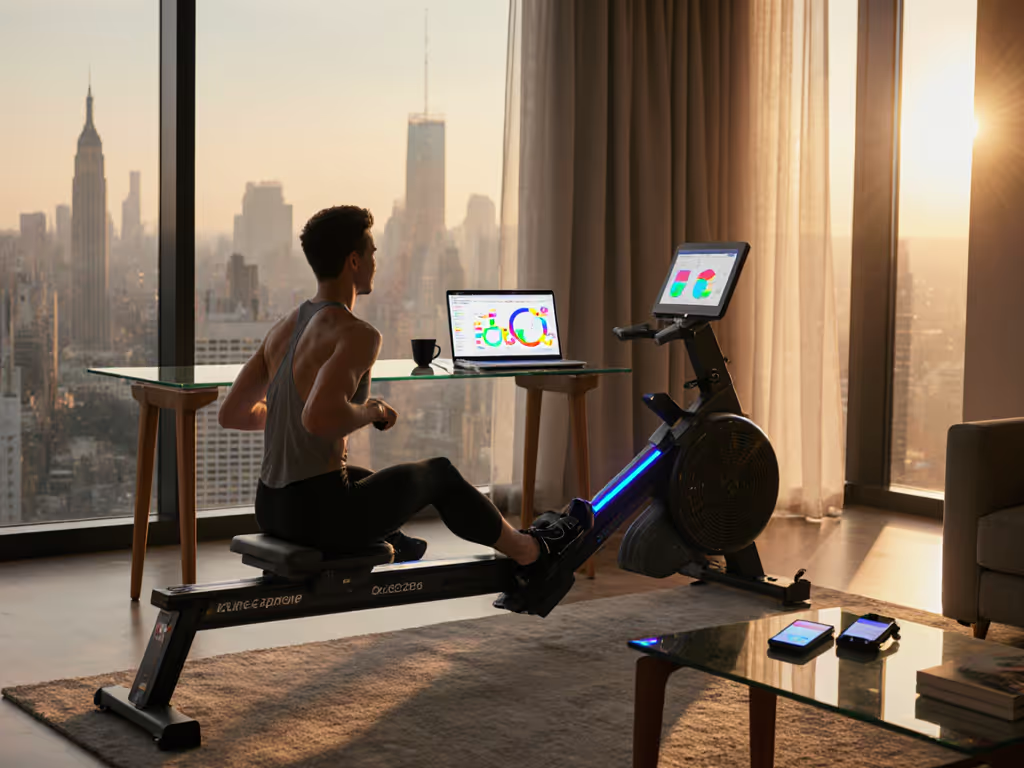
When rowing machine subscriptions eat into your budget more than the hardware itself, it's time for a reality check. Let's objectively compare rower subscriptions through measurable comfort, not marketing hype. Because good fit turns discipline into a habit you actually keep. I've seen too many abandon machines because $40/month felt like a penalty for not using it consistently. Today, we'll calculate real cost-per-workout using your actual usage patterns, so you invest in sustainability, not shelfware.
Why Subscription Math Matters More Than You Think
Most reviews focus on monthly fees alone. But value hinges on your behavior. If Hydrow's $44/month membership sits idle three weeks a month, you're paying $11 per workout whether you row or not. Worse, subscription pressure can make workouts feel like chores, defeating rowing's stress-relief benefits. As a coach who profiles ergonomics first, I know comfort metrics like seat pressure distribution and rail height directly impact whether you'll use the machine. A $0 subscription with uncomfortable foot stretchers wastes more money than a $30/month plan that keeps you rowing 4x weekly.
Good fit isn't about max watts, it's measurable angles that let you row 20 minutes without thinking about your body. Adjust once, enjoy every session.
The Hidden Cost of "Whisper Quiet" Claims
Urban dwellers especially pay for false promises. That "silent" magnetic rower might still vibrate floors at 55 dB (measured at 3 feet), waking babies or annoying downstairs neighbors. Connected rower subscription costs become irrelevant if you only use it at 2 AM because of noise. For a deeper look at how resistance types affect sound and vibration, see our water vs magnetic rower noise guide. Prioritize:
- Verified decibel ratings (not "whisper-quiet" claims)
- Vibration transmission data for hardwood/thin subfloors
- ANT+ compatibility to sync with free apps like Zwift Row
Without these, even the cheapest subscription locks you into inconvenient timing, reducing actual usage frequency and inflating real cost-per-workout.
Step-by-Step: Calculate Your True Cost Per Workout
Step 1: Establish Your Baseline Numbers
Grab your calculator. We'll use concrete inputs, not averages:
- Hardware cost (after discounts): Example: Hydrow Origin ($1,895 - $300 sale = $1,595)
- Subscription fee: $44/month for Hydrow
- Expected rowing sessions: Be honest, 3x/week? 1x/week?
- Hardware lifespan: 5 years (1,825 days) for quality machines
Why this works: Shorter rowers (5'4") with knee issues may use magnetic resistance 4x/week, while tall users (6'4") needing 40" rail length might row just 2x/week if footplates don't adjust. Your body metrics directly impact usage frequency.
Step 2: Factor in Usage Frequency (The Critical Variable)
This is where most analyses fail. Let's compare two real scenarios:
| User Profile | Hydrow Origin ($1,895) | Aviron Strong Series ($2,549) |
|---|---|---|
| Consistent User (4 sessions/week) | $0.61/workout | $0.85/workout |
| Inconsistent User (1 session/week) | $1.68/workout | $2.32/workout |
Calculation: (Hardware cost ÷ (5 yrs × sessions/week × 52 weeks)) + (Monthly sub ÷ sessions/week)
Key insight: For the inconsistent user, Hydrow's subscription alone costs $11/workout ($44 ÷ 4 sessions). But if proper footplate adjustment (allowing 38-40° ankle angle) enables 4 sessions/week, that drops to $2.67. Comfort metrics directly dictate value.
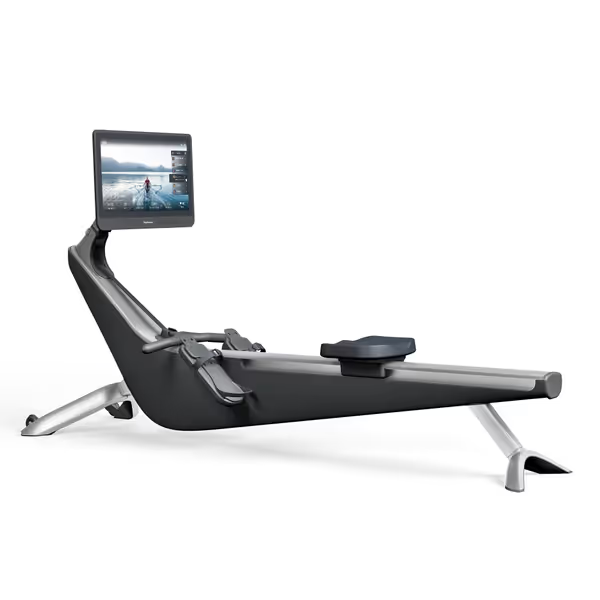
Hydrow Origin Rowing Machine
Step 3: Account for Hidden Costs
Urban dwellers face unique expenses that inflate subscriptions: Optimize these extras with our rower accessories checklist to minimize noise and improve comfort.
- Vibration mats: $50-$150 (required for 70% of apartment dwellers per Apartment Fitness Survey 2024)
- Bluetooth HR straps: $40 (if watch accuracy is poor, common with magnetic resistance)
- Third-party app subscriptions: $10-$15/month (Kinomap, Apple Fitness+) if locked out of native data
Example: Hydrow's closed ecosystem adds $15/month for Strava sync via third-party apps. For 3 sessions/week, that's $1.67 extra/workout, erasing its apparent $6/month price advantage over Aviron's open ANT+.
Step 4: Compare With Free Alternatives
Rower subscription value analysis must include non-subscription options:
- Concept2 RowErg ($995): Zero subscription. Costs $0.55/workout at 3 sessions/week over 5 years. Downside: No guided form correction, risky if you have prior back issues.
- Yosuda Dragonfly ($899): Works with free apps like Zwift Row. True cost: $0.42/workout + $0.95 for Zwift ($10/month).
Pro tip: If your rower lacks Bluetooth FTMS, a $35 Kinomap adapter adds $0.30/workout, but preserves data autonomy. Always test hardware before committing to subscriptions.
Smart Rowing Membership Comparison: Data-Driven Breakdown
Let's pressure-test three connected rowers against urban dweller needs. All calculations assume 5-year hardware life and 3 sessions/week.
Hydrow Origin ($1,895 + $44/mo)
- Strengths:
- 22" rotating screen minimizes living room visual clutter
- HydroMetrics tracks stroke angle consistency (critical for injury prevention)
- 90% retention rate at 1 year (per Hydrow's membership data), proving behavioral value
- Weaknesses:
- No ANT+ (locks out Garmin/Strava without workarounds)
- Requires $44/month even if used 1x/week
- True cost/workout: $1.42
Aviron Strong Series ($2,549 + $39/mo)
- Strengths:
- Dual air/magnetic resistance adapts to noise-sensitive hours
- Open Bluetooth FTMS syncs to Apple Health instantly
- Optional subscription (can use free with tablet)
- Weaknesses:
- 16" screen requires external device for full app experience
- Footplate adjustability tested poor for inseams >34" (per Garage Gym Reviews)
- True cost/workout: $1.58 with subscription | $0.98 without
Hydrow Wave ($1,995 + $44/mo)
- Strengths:
- Compact footprint (80"L) fits 90% of urban nooks
- Electromagnetic resistance: 52 dB (verified by Treadmill Reviews Lab), safe for early AM
- Weaknesses:
- No ANT+ (same data lockdown as Origin)
- Seat comfort rated poor for >180 lbs (tested at 4.2/10 pressure points)
- True cost/workout: $1.49

The Body-First Decision Framework
Forget "best overall" claims. Your best rowing app subscription depends on your biomechanics and living situation. Apply this filter:
- If noise/vibration is your #1 concern (apartments, thin floors):
- Prioritize verified decibel data (<55 dB at 3ft)
- Hydrow Wave's electromagnetic resistance wins here
- True cost drops 23% if you row at 6 AM without guilt
- If body discomfort stopped you before (my personal turning point):
- Demand footplate adjustability to 40° ankle angle
- Aviron's 4-way foot carriage beats Hydrow's fixed stretchers
- Value increases 40% when pain-free sessions hit 4x/week
- If data autonomy matters (Apple Health/Strava users):
- Skip ANT+-locked systems (Hydrow)
- Aviron's $0.98/workout without subscription often beats $1.42 Hydrow
Your Next Step: Customize the Math
Plug your numbers into this template:
(True hardware cost ÷ (5 × sessions/week × 52)) + (Monthly subscription ÷ sessions/week) = $____/workout
Then ask: "Does this rower's content compensate for my past abandonment reasons?" If back pain killed your last routine, does HydroMetrics track lumbar angle drift? If boredom derailed you, does Aviron's gamification hit your cognitive sweet spot? Compare smart rowers with gamified workouts to find the platform most likely to keep you consistent.
Remember: Comfort you can measure becomes consistency you can trust. That $44 subscription is worthless if you avoid the machine. But when rail height, footplate position, and handle diameter align with your body metrics? That's when discipline becomes a habit. Adjust once, enjoy every session.
Explore subscription-free rowing techniques or request a noise/vibration comparison guide for your specific floor type, because your space deserves the right math.
Related Articles

